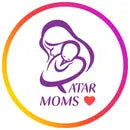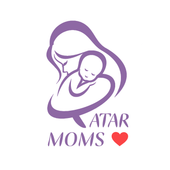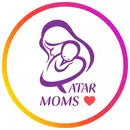An allergy to milk in infants is one of the most common health issues faced by newborns, especially in the early months of their lives. It is a serious condition that requires taking the necessary measures to prevent the child from being exposed to the allergen. In some cases, it may be essential to completely exclude milk and its products from the baby's diet and seek suitable alternative food options to meet their nutritional needs. In this article, we will discuss the causes and symptoms of milk allergy in infants, how to diagnose it, the treatment of breast milk allergy in infants, and some important tips for parents to manage and prevent it.
What are the Symptoms of Milk Allergy in Infants?
Signs of lactose intolerance in newborns may vary from one case to another. These symptoms may appear within hours or days after consuming milk or its products and can range from severe to mild. They include:
1. Digestive disturbances
Infants with milk allergies may experience frequent vomiting, diarrhoea, or constipation, along with excessive gas and a constant burp. They may also develop mouth infections and tongue swelling.
2. Respiratory issues
An allergy to milk in infants can lead to recurrent upper respiratory tract infections, such as nasal, throat, and sinus inflammations, causing difficulty breathing.
3. Skin rash
A skin rash in the form of red patches or eczema may appear on the baby's body, accompanied by severe itching. It often appears on the face, causing swelling, and may spread to other parts of the body.
4. Ear inflammation
One of the symptoms of milk allergy in infants is swelling and irritation in the tissues near the middle ear. It includes ear pain, redness, and swelling, and the baby may also experience fever and hearing disturbances.
How do you Diagnose an Allergy to Milk in Infants?
There are different methods to test for an milk allergy in infants, to determine whether the child is sensitive to milk proteins or not, including:
1. Skin Prick Test
This test is performed by placing tiny drops of suspected milk extract on the surface of the skin, and then the skin is lightly pricked with a thin needle. The doctor observes the injection site for any skin reactions, such as redness or swelling in the area. If a skin reaction occurs, the child may be allergic to milk proteins.
2. Blood Antibody Test
A blood test is conducted in the laboratory to check for specific antibodies in the infant's blood, searching for immune globulins (such as Immunoglobulin E, or IgE) that indicate the presence of milk allergy.
3. Oral Food Challenge
An oral food challenge can be performed to determine if the infant has a milk allergy. This involves removing milk from the baby's diet for a certain period and observing the symptoms that appear. Then, the baby is gradually reintroduced to milk in small amounts, and the doctor monitors for any allergic reactions in case symptoms occur.
What is the Treatment for Breast Milk Allergy in Infants?
Treating milk allergies in infants involves several steps and measures to alleviate symptoms and avoid accompanying problems. Here are some important treatment procedures:
- Avoiding milk-containing products
Parents should avoid giving infants with milk allergies any product that contains milk, including natural milk and dairy products such as milk, butter, cheese, and yoghourt.
- Replacing milk with alternative foods
Milk can be replaced with safe and suitable alternative foods that meet the nutritional needs of infants, such as soy milk. It is advisable to consult a paediatrician or a nutrition expert to select the most appropriate alternatives.
- Skincare
Take good care of the baby's skin by moisturizing it properly and avoiding skin irritants if the baby is experiencing a skin rash due to a milk allergy.
- Medication
In severe cases, the doctor may prescribe antihistamines to alleviate allergic symptoms.
In conclusion, allergies to milk in infants are a common health issue that some babies may encounter in the early months of their lives. The symptoms of milk allergy in infants may vary among infants, including digestive and respiratory disorders, skin rashes, and ear infections. The diagnosis of this allergy can be achieved through simple procedures, as mentioned in the article. The treatment of breast milk allergy in infants, it involves avoiding exposure to allergens and taking necessary measures to maintain the baby's health and safety. Finally, we advise parents to pay close attention to the nutrition of their infants and monitor any unusual symptoms that may appear and cause harm to their health.
For more information about maternal and infant health, we recommend visiting the Qatar Moms blog.
If your baby is allergic to milk, you can browse the Baby Feeding Essentials section to discover suitable alternatives such as specialized baby milk formula. You can also explore the Baby and Toddler Food section which offers safe and nutritious options.
Choose from a variety of baby bottles—whether durable glass feeding bottles, lightweight plastic ybab bottles, or anti-colic silicone bottles —to ensure safe feeding, and simplify your daily routine with a bottle preparation machine that saves time and ensures accurate mixing.
Explore more products at Qatar Moms Store to support your baby’s nutritional journey from day one.
 FREE DELIVERY FOR ORDERS ABOVE 100 QAR
FREE DELIVERY FOR ORDERS ABOVE 100 QAR DELIVERY WITHIN 3 HOURS
DELIVERY WITHIN 3 HOURS APPLE PAY AND CARD PAYMENT AVAILABLE
APPLE PAY AND CARD PAYMENT AVAILABLE



